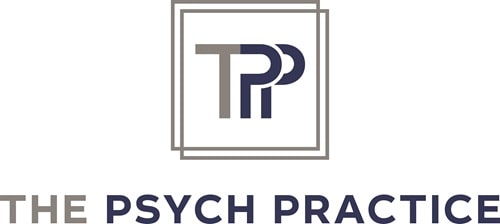RESOURCES
Bringing you simple tips for managing your relationships, mental health and well-being. Please do refer to our services tab for Neuropsychology, Psychological Treatment, expert witness work, supervision or consultation.

Sports and Brain Injury – When Should You Seek Neuropsychological Help?
Playing a sport is an excellent way to get healthy, feel part of a community, minimise risk of disease and improve overall quality of life. Also fun fact-exercise is one of the best ways to increase neuroplasticity – which is how your brain develops new connections to learn new skills more efficiently. There are proven benefits to being involved in sports teams but it is important to be aware of potential risks.
One known risk is a Sports-related Concussion (SRC) which is a form of Traumatic Brain Injury (TBI) that occurs as a result of “a bump, blow, or jolt to the head or a penetrating head injury that disrupts the normal function of the brain.”
This can affect memory, attention, mental processing speed, and emotional control.

Using Metaphors in Personal injury work
Metaphors are a central tool for therapists of many therapeutic modalities. They are central ways in which we understand the world, and particularly, our own inner experiences. Our inner life of thoughts and feelings are described by relating to physical properties of the world. A metaphor can be defined as a figure of speech that denotes a similarity between two unlike entities (Stott et al. 2010).
Metaphors help us see thoughts – their nature and role – in a different light. Just that alone, seeing thoughts differently, helps to create a space, a distance, between us and our thoughts, which helps us to stand back a little, see things a bit more objectively, and make wiser and more helpful decisions about how to react effectively (Killick, Curry & Myles, 2016).

Post-Traumatic Stress Disorder and Traumatic Brain Injury (2)
Some people may experience post-traumatic stress disorder (PTSD) following a traumatic brain injury (TBI). PTSD is a severe psychological reaction to a traumatic event. It involves the persistent re-experience of the trauma, avoidance of the stimuli which remind the person of the event, increased arousal, and a numbing emotional response.
Relaxation techniques are therapeutic exercises designed to assist individuals with decreasing physical and psychological tension and anxiety. People who have experienced PTSD following a TBI find that they are tense, nervous and anxious most of the time. Anxiety can be overwhelming, and it can take a toll on both your emotional and your physical health. Please read further for relaxation technniques.

Post-Traumatic Stress Disorder and Traumatic Brain Injury (1)
Some people may experience post-traumatic stress disorder (PTSD) following a traumatic brain injury (TBI). PTSD is a severe psychological reaction to a traumatic event. It involves the persistent re-experience of the trauma, avoidance of the stimuli which reminds the person of the event, increased arousal, and a numbing emotional response.
Loss of memory for the circumstances of the injury means that most people with severe brain injuries are not troubled by disturbing memories of the event and as such, PTSD is most commonly experienced after mild brain injuries when memories of the circumstances surrounding the injury are retained. However, some may develop a fear of the circumstances similar to that of the injury and a small number of people have disturbing memories of the early stages of their recovery.
Grounding is a practice that can help you pull away from:
Flashbacks;
Unwanted memories; and
Negative challenging emotions associated with PTSD.
It can help with (1) Distracting yourself from stressful and anxiety-provoking situations by thinking about something more pleasant. And (2) It can help you ground yourself when you feel high levels of anxiety or panic.

Managing ‘Challenging Behaviour’ for Families living with brain injury
Individuals living with brain injury present with various levels of behavioural disturbance termed ‘challenging behaviour’. This refers to behaviours that cause distress including physical and verbal aggression, inappropriate social and sexual acts and difficulties with initiation and motivation (Kelly, 2006). This may manifest as staying in bed for long periods, watching TV for hours, swearing and so on.
In the client’s home where the environment is less structured, these ‘challenging behaviours can endure or worsen overtime (Johnson, 996). This can result in exclusion from services, cause significant distress for those providing support and reduce the likelihood of successful social and community re-integration (Kelly, 2008).
Research suggests that the following can aid family members in dealing with these behaviours:
Modelling (demonstrating the desirable behaviour first so it can be copied by your loved one with brain injury);
Consistent prompting (giving or encouraging desired behaviour through cuing);
Giving verbal feedback in the moment;
Reinforcement of the desirable behaviour through praise;
Changing your expectations of your loved one with brain injury;
Knowledge of the condition
Modifying the environment
(Barman 2016; Kelly 2008)

Helpful apps for daily life after brain injury
After a brain injury, it is normal to experience changes in how you feel your brain is working. It may be apparent that the brain is not functioning as it used to and processes such as memory, inhibition, motivation, and concentration may be affected. Due to recent technological advancements, there are numerous ways to leverage your smartphone to support daily living.
We have compiled a list of helpful and easy-to-use apps that will make daily tasks seem more manageable:

Love In Lockdown: How To Maintain Healthy Relationships
Lockdown has had a profound effect on everyday life, enforced time spent together at home or forced time apart, as well as the pressure to entertain and relate, has put significant strains on relationships. Every relationship goes through its ups and downs, but for...
